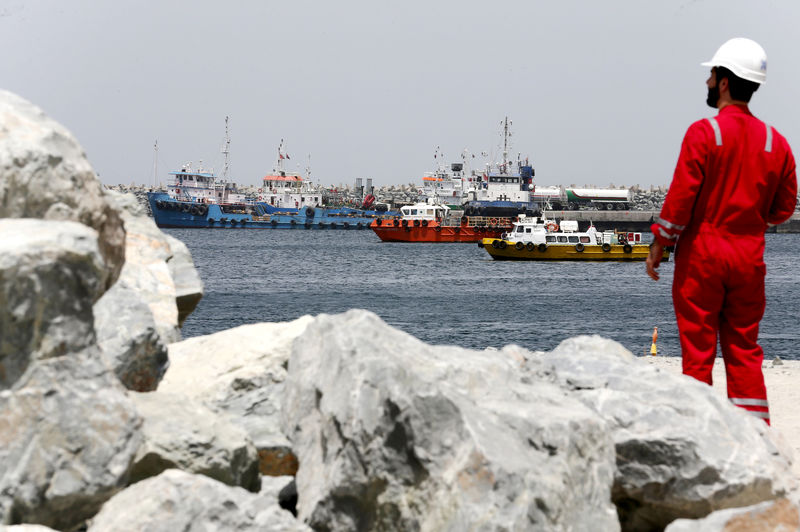By Roslan Khasawneh
SINGAPORE (Reuters) - Shippers trying to minimize time in the Middle East after oil tanker attacks pushed up insurance costs are scaling back purchases of marine fuels from the United Arab Emirates' (UAE) Fujairah oil hub, trade sources said.
Instead, they are turning primarily to Singapore, the world's top refueling hub, to buy marine fuels, also known as bunkers, with some diverting to smaller bunkering ports, including in India and Sri Lanka, the sources said.
A ton of 380-centistoke (cst) high-sulphur fuel oil (HSFO) in Fujairah has slipped from an average $5-$10 premium over Singapore in May to a discount of $30-$70 over the past two weeks, three sources said.
"$50 per ton below Singapore? Bargain, if you can cover the war risk premium," said a Singapore-based marine fuels trader for a large commodities merchant.
All of the sources declined to be identified due to company policy.
A spate of attacks on tankers since May around the Strait of Hormuz and the Gulf of Oman has sent war risk insurance costs soaring, prompting ship operators to cut back the time spent in the region as much as possible.
"There is overwhelming evidence that vessels are avoiding Fujairah and that is causing surging demand in Singapore," said the Singapore-based trader.
Ship owners pay annual war-risk cover as well as an additional 'breach' premium when entering high-risk areas. These separate premiums are calculated according to the value of the ship, or hull, for a seven-day period.
Ship insurers have quoted the breach rate for 7 days at around 0.35 percent from as much as 0.5 percent two weeks ago. That would mean additional costs of up to $100,000 for a VLCC on a seven-day voyage.
"This war risk premium is a nightmare," said a Singapore-based shipbroker executive.
"It's a case by case, trade by trade decision and there's no science to it ... it's just each trade on its merit and how you work it out accordingly."
The increased bunker demand in Singapore helped push Asian fuel oil market premiums to record highs last week, with suppliers in the city-state already struggling with tightening stocks.

Singapore fuel oil inventories